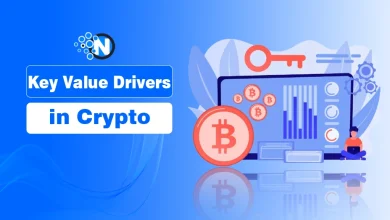Role of Wallets in the Blockchain Ecosystem
In the world of blockchain, wallets are essential tools that secure digital assets and enable their use. People who use these wallets, are in control of their own digital identities and secret keys, as they interact with decentralized applications (dApps).
Rather than buying and selling cryptocurrencies, you can utilize smart contracts, DeFi, and NFTs effectively by using these wallets. Wallets will continue to be an essential means for people to access the decentralized web safely and quickly, even as blockchain technology advances.
Most people are interested in getting involved in blockchain technology. But they don’t even know what a blockchain wallet is. And if you are also one of them, this blog post is for you.
I am writing this blog post to explain the role of wallets in the blockchain ecosystem.
So let’s start
What Are Blockchain (Crypto) Wallets?
Blockchain or crypto wallets are tools used to manage secret keys and blockchain addresses. These wallets are developed on blockchain, which is fully decentralized, so you are the only authorized person to your assets and private keys. Any kind of transaction, including receiving and sending cryptocurrencies, can only be done by you.

There are multiple types of blockchain wallets used worldwide, including hot wallets and cold wallets, and others, which offer different features and conveniences.
When using a crypto wallet, you are the owner of this digital bank. Instead of cash, you can keep all of your digital assets in one place. Like a bank, a crypto wallet can help you save cash. The only thing that’s different is that the money is crypto. Some cryptocurrencies will even pay you interest if you keep them in your pocket.
Types of Wallets
There are different types of wallets, and you need to determine which one is best for you. Here is a brief explanation of the most popular types of blockchain wallets used worldwide.
Software Wallets or Hot Wallets
If you are a trader who trades frequently, then using a Hot wallet will be a better option for you because they are easy to use and accessible everywhere through mobile apps, desktop, and web platforms. One of the most popular hot wallets is Trust Wallet and MetaMask.
Always be cautious because hot wallets are always connected to the internet, which is why they are always vulnerable to a cyberattack.
Hardware Wallets or Cold Wallets
If you use a hardware wallet, which is typically a USB drive, the private key for your digital assets will be stored in a physical medium. It is very secure because it is not always connected to the internet. When you pull out the key, it becomes isolated.
Multiple hardware wallets used for this purpose include SafePal, KeepKey, Ledger Nano X, and many more.
Paper Wallets
Paper Wallets were primarily used in the early days of blockchain and cryptocurrencies. It is a low-tech solution in which you have to write down your public and private keys on paper and keep them secure.
You can generate a paper wallet from some of the reputable sites like
- bitaddress for Bitcoin
- walletgenerator (supports multiple coins)
- myetherwallet for Ethereum
When using a paper wallet, always remember that you should never share your private key with anyone. Never store a digital picture of your paper wallet unless it is encrypted and secure.
Role of Wallets in Blockchain
Blockchain wallets store private keys, make transactions easier, and interact with decentralized apps (DApps). Multiple software and hardware systems are used to make sure that assets are safely handled on the blockchain.
Key Storage
Wallets are fully decentralized. Private keys are the most important credentials for operating a wallet in blockchain. Keys are protected with encryption technology. You have to make sure that you don’t disclose your private keys to anyone.
DApp Integration
A Web3 wallet should be built into every open app. DApp wallet connection will let you keep track of your assets and interact with the blockchain. The welcome message is what connects your app with the wallet.
Transaction Facilitation
The most important feature that these wallets offer is the transaction facility. You don’t require any permission to send your digital currencies to anyone. There are no limits on how much you can send or receive in your wallet. You can swap and exchange your currency with another one by using a wallet.
Multi-Currency Support
These wallets offer multiple currency holdings support. It’s not necessary to have a specific currency for a particular wallet. You can store your digital assets in a wallet without converting your currency to any other.
Multi-Signature Security
Multisig Wallets are also known as a Multisignature Wallet or Shared Wallet. It is a cryptocurrency wallet that requires two signatures or two co-signers to confirm a transaction.
Summing Up
Wallets are essential for managing digital assets securely in the blockchain ecosystem. They provide safe storage for private keys and facilitate transactions, enabling users to access decentralized applications (dApps). With various options, such as hot wallets and cold wallets, users can choose what best fits their needs.
Wallets support multiple currencies and enhance security through features like multi-signature. Understanding the role of wallets in blockchain is important for anyone looking to engage with cryptocurrencies, DeFi, and NFTs effectively.




